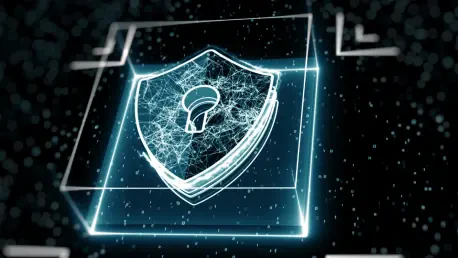In recent years, the Silent Ransom Group (SRG) has emerged as a significant threat, particularly targeting law firms with sophisticated extortion tactics. Known by various aliases such as Chatty Spider, Luna Moth, and UNC3753, SRG has demonstrated an eerie capability to infiltrate systems and compromise sensitive information. This group initially employed phishing emails disguised as subscription services, luring victims into making phone calls to the attackers. This interaction facilitated the installation of remote access software, eventually exposing the victim’s data to theft and extortion. As of this year, the Federal Bureau of Investigation (FBI) reports a tactical shift by SRG, with the attackers now directly initiating contact through impersonated IT department phone calls. With remote sessions established, SRG escalates their access privileges, often utilizing tools like WinSCP or Rclone to siphon off confidential data. This alarming trend underscores the necessity for law firms to enhance their cybersecurity strategies and use proactive measures to safeguard their critical information.
Emerging Threats and Tactical Shifts
The Federal Bureau of Investigation has highlighted the worrying adaptation of strategies employed by the Silent Ransom Group, revealing a change from phishing emails to more direct phone calls that impersonate IT staff. This altered approach has enabled SRG to compromise systems more quickly by exploiting any trust victims might extend to IT personnel. Such tactics allow the group to bypass initial defenses and gain deeper access to sensitive data, a capability that poses a heightened risk not just to law firms but also to sectors like medicine and insurance. The seamless manner in which SRG maneuvers these attacks, using legitimate system utilities that often evade detection by antivirus software, amplifies concerns over data security. The stealth of these incursions means they leave minimal trace, something that can easily disrupt a firm’s operations and reputation. Understanding SRG’s evolving tactics proves crucial in anticipating potential risks and adapting protective measures accordingly.
Strategic Defensive Measures
Faced with a formidable adversary such as SRG, law firms must deploy multi-layered defenses to effectively shield against these threats. Awareness training is fundamentally significant, ensuring all employees recognize the signs of phishing and understand the protocols surrounding IT staff interactions. Wayward clicks or calls can have devastating consequences, thus firms must instill a culture of caution and vigilance. In addition, firms should implement robust authentication protocols, requiring multiple forms of verification when accessing sensitive data or undergoing system changes. Regular backups provide another layer of security; they ensure that in the event of a breach, critical data can be restored, minimizing potential disruptions and financial losses. Notably, reporting suspected breaches promptly is essential to aid broader investigations, enabling authorities like the FBI to track down culprits and possibly avert further attacks. These combined strategies aim to bolster a firm’s defenses, making it less susceptible to the dangerous reach of SRG.
Lessons from Broad Threat Landscape
The recent spate of ransomware attacks, such as those impacting Nova Scotia Power and Marks & Spencer, serves as a stark reminder of the escalating threat landscape in today’s digital age. These instances, while widespread, highlight the critical importance of vigilance and preparedness in all fields but especially among law firms that handle sensitive legal data. Having effective cybersecurity measures in place represents more than a mere business necessity; it is a fundamental element of operational integrity and client trust. Law firms, in particular, are urged to recognize the value of their data and the implications of its breach. Regularly updating cybersecurity protocols, conducting audits, and re-evaluating the preparedness of IT systems are prudent steps in combating potential cyber threats. Engaging in discussions with cybersecurity experts may provide additional insights into emerging threats and innovative solutions, ensuring law firms stay a step ahead of malicious actors like SRG, safeguarding their privileged information, and maintaining their esteemed reputation.
Expanding Future Considerations
Over recent years, the Silent Ransom Group (SRG) has emerged as a formidable menace, particularly targeting law firms with advanced extortion strategies. Known by several aliases like Chatty Spider, Luna Moth, and UNC3753, SRG exhibits an unsettling ability to penetrate systems and compromise sensitive data. Initially, they executed phishing attacks masquerading as subscription services, enticing victims to call attackers. This interaction allowed the installation of remote access software, leading to data exposure and extortion. Recently, the FBI noted SRG’s strategic shift to directly contacting victims by posing as IT department representatives in phone calls. Through these remote sessions, SRG escalates their access privileges, employing tools like WinSCP or Rclone to extract confidential data. This concerning trend emphasizes the urgent need for law firms to bolster their cybersecurity defenses and adopt proactive measures to protect vital information against such insidious threats.









